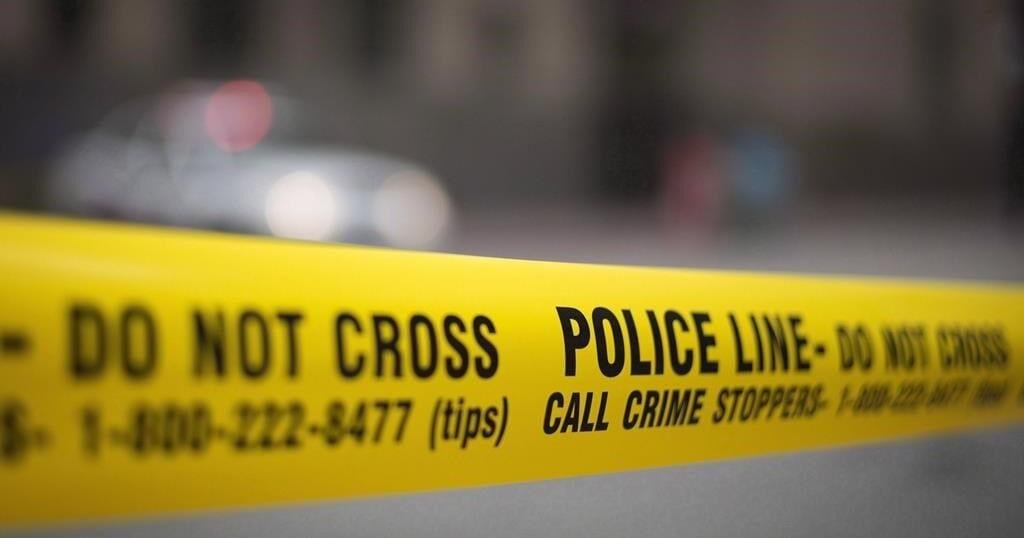One third of Canadians are apparently fine with prescribing assisting suicide for no other reason than the fact that the patient is poor or homeless.
News
One third of Canadians fine with prescribing assisted suicide for homelessness

The results were contained in a recent Research Co. poll probing just how comfortable Canadians were with the current state of the country’s MAID (medical assistance in dying) regime.
Starting in March 2021, Canada became one of only a handful of countries to legalize assisted suicide even in instances where a patient does not have a terminal illness. Ever since, a Canadian can be approved for MAID simply for having a “grievous and irremediable medical condition.”
Research Co. found that 73 per cent of poll respondents favoured the current regime, and only 16 per cent opposed it.
Pollsters also found not-insignificant numbers of Canadians who favoured assisted suicide in cases where no medical condition of any kind was present.
And 20 per cent of respondents were fine with MAID being handed out to anybody for any reason. In other words, one fifth of respondents agreed with the sentiment “medical assistance in dying should always be allowed, regardless of who requests it.”
Notably, these most absolutist supporters of assisted suicide were pretty evenly distributed among age groups, regions and even political demographics: 20 per cent Conservatives, 20 per cent of NDPers and 22 per cent of Liberals were in the “always be allowed” camp.
It’s not the first time that a poll has found significant numbers of Canadians willing to expand MAID well beyond its original purpose as a form of euthanasia for the terminally ill.
In February, an Angus Reid Institute poll similarly found 61 per cent of Canadians favouring the country’s current MAID regime.
Canadian comfort with MAID may explain why it so quickly has become more widespread and liberalized than in almost any other jurisdiction offering legalized assisted suicide.
Advertisement 5
Article content
Canada is notable for its relative lack of checks on the procedure: MAID can be approved and administered by nurse practitioners whereas most countries require the approval of a physician. Canada is also experiencing a skyrocketing rate of MAID deaths well beyond anything experienced abroad.
While only 2,838 Canadians opted for assisted suicide in the first full year of legalized MAID after it became legal in June 2016, as of last count in 2021 that had risen to 10,064 — an increase of 32.4 per cent over just the year before.
The practice of referring or recommending assisted suicide has also spread well beyond the traditional boundaries of the health-care system. Notably, MAID is routinely practised within the Canadian prison system, despite similar measures proving deeply controversial in Belgium, a pioneer in assisted suicide legalization.
Just 31 per cent of Angus Red Institute respondents thought it was a good idea. Among Research Co. respondents, 43 per cent backed MAID for the mentally ill against 45 per cent who did not.
MAID for the mentally ill was supposed to become legal in March, but in one of the only instances of Canada pulling back on its rapid expansion of assisted suicide, that date was ultimately pushed forward into 2024 in order to “prepare for the safe and consistent assessment and provision of MAID in all cases.”
The Research Co. poll surveyed 1,000 adults online between April 22 and 24. The data was statistically weighted according to Canadian census figures and Research Co. says the margin of error is plus or minus 3.1 percentage points, 19 times out of 20.

News
Whitehead becomes 1st CHL player to verbally commit to playing NCAA hockey

Braxton Whitehead said Friday he has verbally committed to Arizona State, making him the first member of a Canadian Hockey League team to attempt to play the sport at the Division I U.S. college level since a lawsuit was filed challenging the NCAA’s longstanding ban on players it deems to be professionals.
Whitehead posted on social media he plans to play for the Sun Devils beginning in the 2025-26 season.
An Arizona State spokesperson said the school could not comment on verbal commitments, citing NCAA rules. A message left with the CHL was not immediately returned.
A class-action lawsuit filed Aug. 13 in U.S. District Court in Buffalo, New York, could change the landscape for players from the CHL’s Western Hockey League, Ontario Hockey League and Quebec Maritimes Junior Hockey League. NCAA bylaws consider them professional leagues and bar players from there from the college ranks.
Online court records show the NCAA has not made any response to the lawsuit since it was filed.
“We’re pleased that Arizona State has made this decision, and we’re hopeful that our case will result in many other Division I programs following suit and the NCAA eliminating its ban on CHL players,” Stephen Lagos, one of the lawyers who launched the lawsuit, told The Associated Press in an email.
The lawsuit was filed on behalf of Riley Masterson, of Fort Erie, Ontario, who lost his college eligibility two years ago when, at 16, he appeared in two exhibition games for the OHL’s Windsor Spitfires. And it lists 10 Division 1 hockey programs, which were selected to show they follow the NCAA’s bylaws in barring current or former CHL players.
CHL players receive a stipend of no more than $600 per month for living expenses, which is not considered as income for tax purposes. College players receive scholarships and now can earn money through endorsements and other use of their name, image and likeness (NIL).
The implications of the lawsuit could be far-reaching. If successful, the case could increase competition for college-age talent between North America’s two top producers of NHL draft-eligible players.
“I think that everyone involved in our coaches association is aware of some of the transformational changes that are occurring in collegiate athletics,” Forrest Karr, executive director of American Hockey Coaches Association and Minnesota-Duluth athletic director said last month. “And we are trying to be proactive and trying to learn what we can about those changes.
Karr was not immediately available for comment on Friday.
Earlier this year, Karr established two committees — one each overseeing men’s and women’s hockey — to respond to various questions on eligibility submitted to the group by the NCAA. The men’s committee was scheduled to go over its responses two weeks ago.
Former Minnesota coach and Central Collegiate Hockey Association commissioner Don Lucia said at the time that the lawsuit provides the opportunity for stakeholders to look at the situation.
“I don’t know if it would be necessarily settled through the courts or changes at the NCAA level, but I think the time is certainly fast approaching where some decisions will be made in the near future of what the eligibility will look like for a player that plays in the CHL and NCAA,” Lucia said.
Whitehead, a 20-year-old forward from Alaska who has developed into a point-a-game player, said he plans to play again this season with the Regina Pats of the Western Hockey League.
“The WHL has given me an incredible opportunity to develop as a player, and I couldn’t be more excited,” Whitehead posted on Instagram.
His addition is the latest boon for Arizona State hockey, a program that has blossomed in the desert far from traditional places like Massachusetts, Minnesota and Michigan since entering Division I in 2015. It has already produced NHL talent, including Seattle goaltender Joey Daccord and Josh Doan, the son of longtime Coyotes captain Shane Doan, who now plays for Utah after that team moved from the Phoenix area to Salt Lake City.
___
The Canadian Press. All rights reserved.
News
Calgary Flames sign forward Jakob Pelletier to one-year contract

CALGARY – The Calgary Flames signed winger Jakob Pelletier to a one-year, two-way contract on Friday.
The contract has an average annual value of US$800,000.
Pelletier, a 23-year-old from Quebec City, split last season with the Flames and American Hockey League’s Calgary Wranglers.
He produced one goal and two assists in 13 games with the Flames.
Calgary drafted the five-foot-nine, 170-pound forward in the first round, 26th overall, of the 2019 NHL draft.
Pelletier has four goals and six assists in 37 career NHL games.
This report by The Canadian Press was first published Sept. 13, 2024.
The Canadian Press. All rights reserved.
News
Kingston mayor’s call to close care hub after fatal assault ‘misguided’: legal clinic

A community legal clinic in Kingston, Ont., is denouncing the mayor’s calls to clear an encampment and close a supervised consumption site in the city following a series of alleged assaults that left two people dead and one seriously injured.
Kingston police said they were called to an encampment near a safe injection site on Thursday morning, where they allege a 47-year-old male suspect wielded an edged or blunt weapon and attacked three people. Police said he was arrested after officers negotiated with him for several hours.
The suspect is now facing two counts of second-degree murder and one count of attempted murder.
In a social media post, Kingston Mayor Bryan Paterson said he was “absolutely horrified” by the situation.
“We need to clear the encampment, close this safe injection site and the (Integrated Care Hub) until we can find a better way to support our most vulnerable residents,” he wrote.
The Kingston Community Legal Clinic called Paterson’s comments “premature and misguided” on Friday, arguing that such moves could lead to a rise in overdoses, fewer shelter beds and more homelessness.
In a phone interview, Paterson said the encampment was built around the Integrated Care Hub and safe injection site about three years ago. He said the encampment has created a “dangerous situation” in the area and has frequently been the site of fires, assaults and other public safety concerns.
“We have to find a way to be able to provide the services that people need, being empathetic and compassionate to those struggling with homelessness and mental health and addictions issues,” said Paterson, noting that the safe injection site and Integrated Care Hub are not operated by the city.
“But we cannot turn a blind eye to the very real public safety issues.”
When asked how encampment residents and people who use the services would be supported if the sites were closed, Paterson said the city would work with community partners to “find the best way forward” and introduce short-term and long-term changes.
Keeping the status quo “would be a terrible failure,” he argued.
John Done, executive director of the Kingston Community Legal Clinic, criticized the mayor’s comments and said many of the people residing in the encampment may be particularly vulnerable to overdoses and death. The safe injection site and Integrated Care Hub saves lives, he said.
Taking away those services, he said, would be “irresponsible.”
Done said the legal clinic represented several residents of the encampment when the City of Kingston made a court application last summer to clear the encampment. The court found such an injunction would be unconstitutional, he said.
Done added there’s “no reason” to attach blame while the investigation into Thursday’s attacks is ongoing. The two people who died have been identified as 38-year-old Taylor Wilkinson and 41-year-old John Hood.
“There isn’t going to be a quick, easy solution for the fact of homelessness, drug addictions in Kingston,” Done said. “So I would ask the mayor to do what he’s trained to do, which is to simply pause until we have more information.”
The concern surrounding the safe injection site in Kingston follows a recent shift in Ontario’s approach to the overdose crisis.
Last month, the province announced that it would close 10 supervised consumption sites because they’re too close to schools and daycares, and prohibit any new ones from opening as it moves to an abstinence-based treatment model.
This report by The Canadian Press was first published Sept. 13, 2024.
The Canadian Press. All rights reserved.
-

 Sports11 hours ago
Sports11 hours agoDolphins will bring in another quarterback, while Tagovailoa deals with concussion
-

 Sports13 hours ago
Sports13 hours agoDavid Beckham among soccer dignitaries attending ex-England coach Sven-Goran Eriksson’s funeral
-

 News13 hours ago
News13 hours agoVancouver Whitecaps cautious of lowly San Jose Earthquakes
-

 News11 hours ago
News11 hours agoUnifor says workers at Walmart warehouse in Mississauga, Ont., vote to join union
-

 Sports21 hours ago
Sports21 hours agoCanada’s Marina Stakusic advances to quarterfinals at Guadalajara Open
-

 Sports21 hours ago
Sports21 hours agoDavid Lipsky shoots 65 to take 1st-round lead at Silverado in FedEx Cup Fall opener
-

 Sports21 hours ago
Sports21 hours agoAlouettes receiver Philpot announces he’ll be out for the rest of season
-

 Media10 hours ago
Media10 hours agoWhat to stream this weekend: ‘Civil War,’ Snow Patrol, ‘How to Die Alone,’ ‘Tulsa King’ and ‘Uglies’





















